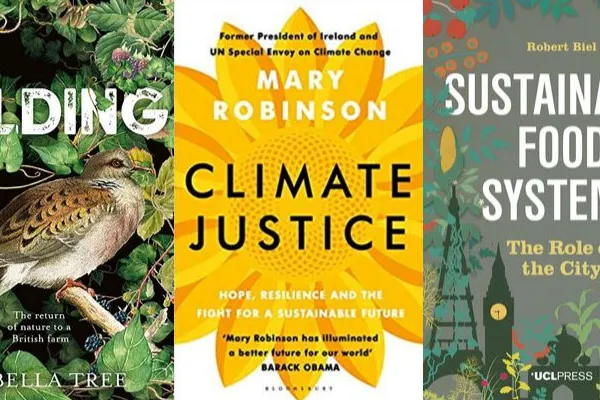Year on Climate Change at the Libraries
News

Published October 23, 2019
As Smith enters the Year on Climate Change, the campus Libraries are dedicated to connecting our community to materials that will further illuminate the topic. Smith community members may contact science librarian Rocco Piccinino, the Libraries’ Year on Climate Change liaison, for assistance finding course readings and reference material.
Collections
Pop-Up Collection
Visit the Young Library to browse a pop-up book display covering a range of topics related to climate change.
ScholarWorks
Smith College’s institutional repository, ScholarWorks, is gathering recordings of the talks given at the Year on Climate Change conference and making them accessible online. See the recordings and other materials in ScholarWorks: Year on Climate Change.
The Libraries Take Action
In August, instructional technologist Travis Grandy presented a session for faculty entitled Strategies & Tools for Paperless Assignments Presenter. Instructors were invited to explore how their classroom practices may support a more sustainable campus community through minimizing paper use, particularly through using tools such as Moodle, Google Drive, and WordPress.
Media producer Dan Bennett and instructional technology specialist Mario Valdebenito are collaborating with teacher Yuri Kumagai, whose students are using Zoom to collaborate with an elementary school in Japan to create climate-change-related magazines. Students will submit final projects to the United Nations.
Working with CEEDS, STRIDE students, and AEMES students, Libraries staff are planning an educational program on the sustainability of the new Neilson Library, which will be launched around when the building opens. The program will provide unmediated information about sustainability choices in Neilson’s building and construction, impacts on the Smith campus, and impacts on the climate.